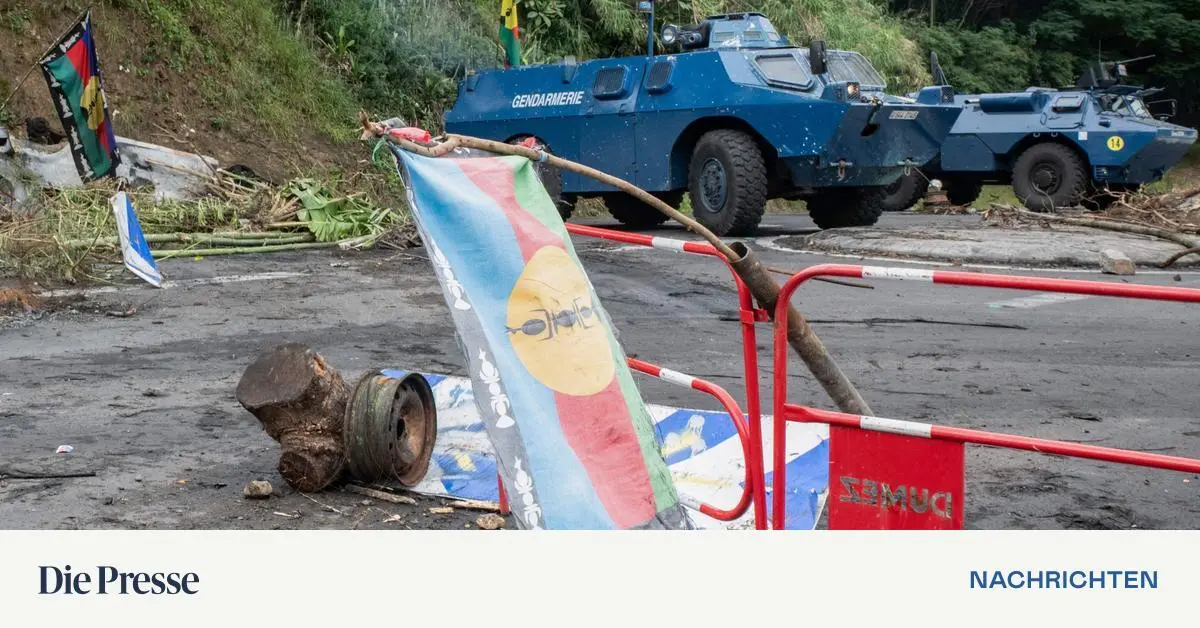Federal Minister of Foreign Affairs Annalena Burbock She pledged to continue providing support to Pacific Island countries in combating the consequences of climate change.
“The climate crisis is literally washing the ground from under the feet of people here,” said the green politician, 16,000 kilometers from Germany. FijiNo German foreign minister had preceded her. “We will not leave the region alone in confronting the greatest security challenge of this century: the climate crisis.”
The ocean's rise is accelerating
Fiji is one of the 14 island nations in the South Pacific that, although having a small share of global emissions of climate-harming gases, are affected by the consequences of climate change. Climate change Some of their existence is threatened. For example, the more than 1,000 Marshall Islands, whose land area is no more than two meters above sea level, could sink into the Pacific Ocean within just a few decades if global warming continues to melt polar ice unchecked.
According to an assessment report issued by the Intergovernmental Panel on Climate Change (IPPC) last year, average global sea level has risen by 20 centimeters since the beginning of the 20th century. During this time, the rate of increase has almost tripled from 1.3 to 3.7 mm per year. Extreme weather events such as increased tropical storms, drought and heavy rain are exacerbating the situation – including in Fiji.
Voninyodrovo: a small village on the climate front
“The Pacific region is literally on the front line of this Climate crisis“says Baerbock during her visit to Fiji, which took her an unusually long three days – including a visit to the weather front in question. For example, it passes through the center of the small village of Vuninudrovo in the hinterland of the capital Suva. There, it is brown and humid And very quickly: the Waimano River is stealing meter after meter of land from the village, where nearly 300 families lived. It was not until March that two meters of the bank surface fell in flood again.
A third of the population has now given up and moved up the slope. To a place that seems safe in the long term. “This village had four to five rows of houses,” says Filimoni Ralugivao, who heads the climate change division at Fiji's Ministry of the Environment. “Now there are only two rows left due to the erosion of the river banks. It is getting worse.”
42 villages in Fiji are at high risk
Things are no better on the coast, where between 70 and 80 percent of the population lives. Resettlement is a big issue. Six villages in Fiji have already been completely abandoned, and 42 of them are considered critically vulnerable. The German Agency for Development and Cooperation (GIZ) supports resettlement projects. But helping island nations is also about economic assistance and encouraging the expansion of renewable energy sources.
Baerbock says seven million euros have been made available so far through the Asian Development Bank fund to support solar energy storage projects in Vanuatu and Tonga. “It is no longer enough to just throw money in the abstract into large UN funds where the money is then paid out years later, but we must act now, very actively and very concretely.”
The first German embassy in the South Seas
This also included the opening of the first German embassy in the South Seas in Fiji last August. A diplomatic presence is urgently needed because competition from China has been around for a long time, and on a completely different scale. “If you're a few streets away from here, you'll see others with ten times as many embassy buildings here,” Baerbock admits.
Ultimately, the people of Fiji do not care who helps them with the climate crisis. “At this point in time we say: Beggars cannot be choosers,” says Filimoni Ralogivao. Ultimately, the very existence of village communities like those in Vuninudrovo is at stake for Fiji.
© dpa-infocom, dpa:240506-99-928201/4
Federal Minister of Foreign Affairs Annalena Burbock She pledged to continue providing support to Pacific Island countries in combating the consequences of climate change.
“The climate crisis is washing the ground from under the feet of people here,” said the green politician, who is 16,000 kilometers away from Germany. FijiNo German foreign minister had preceded her. “We will not leave the region alone in confronting the greatest security challenge of this century: the climate crisis.”
Fiji is one of the 14 island nations in the South Pacific that, although having a small share of global emissions of climate-harming gases, are affected by the consequences of climate change. Climate change Some of their existence is threatened. For example, the more than 1,000 Marshall Islands, whose land area is no more than two meters above sea level, may sink into the Pacific Ocean within just a few decades if global warming continues to melt polar ice unchecked.

“Total coffee aficionado. Travel buff. Music ninja. Bacon nerd. Beeraholic.”







More Stories
For the study: Researchers encountered venomous snakes 40,000 times
Einstein's theory of relativity: A research team discovers a “cosmic error”
This is the best way to protect yourself